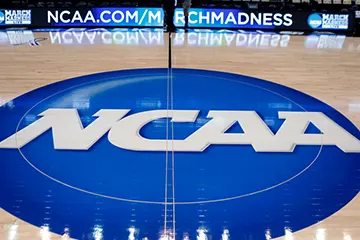 The National Collegiate Athletic Association (NCAA) has set up a first-of-its-kind online sports wagering module, devised to raise awareness of the potential harms and risks associated with gambling. The initiative aims to make over 500,000 current and prospective student-athletes conscious of problem gambling and the impact it might have on their sports activity. It is free and contains helpful information, Q&As, and resources, presented by former student-athletes.
The National Collegiate Athletic Association (NCAA) has set up a first-of-its-kind online sports wagering module, devised to raise awareness of the potential harms and risks associated with gambling. The initiative aims to make over 500,000 current and prospective student-athletes conscious of problem gambling and the impact it might have on their sports activity. It is free and contains helpful information, Q&As, and resources, presented by former student-athletes.
The organization conducted research among student-athletes and campus leaders, inquiring about the personalities that would be the best fit for the sports wagering module’s presenters. As a result, the NCAA chose former college athletes and one NFL player to reach a better understanding and communication with their audiences.
Zaire Franklin, Indianapolis Colts linebacker and former student-athlete at Syracuse was among the ones chosen to introduce the e-learning module. Commenting on the initiative and the growing popularity of sports wagering, he underlined the importance of problem gambling education for athletes.
Charlie Baker, who was appointed as the NCAA’s sixth president on March 1, 2023, also commented on the launch of the sports wagering e-learning module. He said that as soon as he assumed the role of NCAA’s president, he focused his efforts on obtaining detailed data regarding sports wagering within college campuses. He added that all content available in the educational module is entirely based on that data.
Furthermore, Baker stated his conviction that the program would accomplish its objective and would ultimately “help protect student-athletes from the risks that come with sports wagering”. NCAA’s president also expressed his gratitude to the sports personalities who agreed to take part in the project. According to him, their former experience was much more valuable than any other educational material that might have been included in the module.
Data-driven Research Precedes NCAA’s Sports Wagering E-Learning Module
Two surveys were conducted prior to the launch of the sports wagering e-learning module. Both of them played a major part in the identification of the strategic priorities of the project.
The first survey concentrated on respondents aged 18 to 22 and aimed at a better understanding of the attitude towards sports wagering among the peers of student-athletes. As per the findings of this survey, some 58% engaged in sports wagering at least once. Furthermore, some 16% reported a problem gambling behavior and 6% replied they had lost over $500 on sports wagering just in one day.
The second survey was conducted among campus compliance directors and the educational resources they provided regarding sports wagering. The findings gave information on the necessary educational materials the NCAA could deliver.
Clint Hangebrauck, NCAA’s Managing Director of Enterprise Risk Management also expressed his gratitude to the industry experts and organizations who participated in the project and contributed their share of expertise. These included the National Council of Problem Gambling, EPIC Risk Management, and Dr. Jeff Derevensky.
The NCAA currently conducts a nationwide survey of student-athlete sports betting behavior and keeps on cooperating with industry experts, professional sportspersons, mental health counselors, and regulators to limit sports wagering harms and risks.